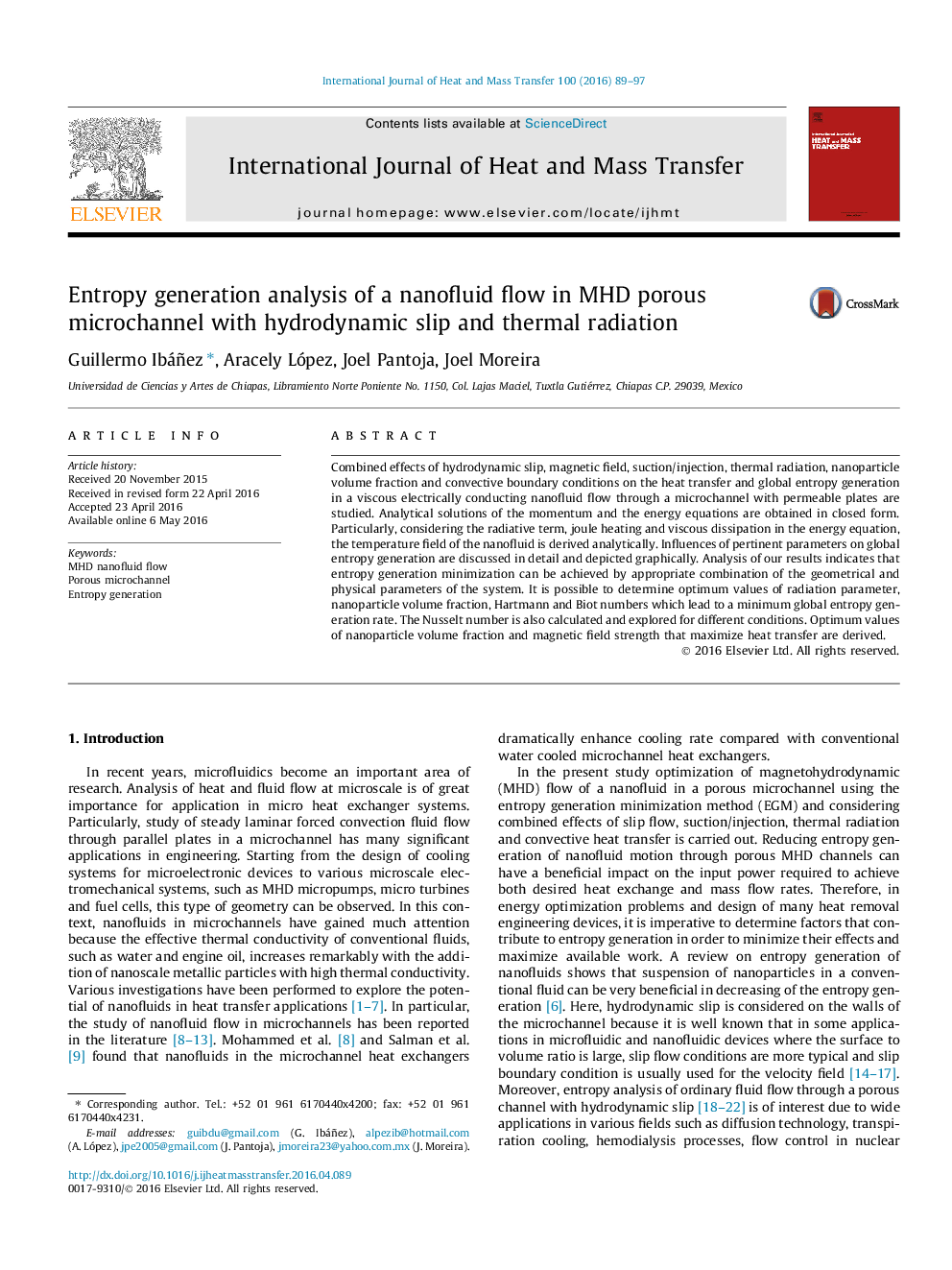| کد مقاله | کد نشریه | سال انتشار | مقاله انگلیسی | نسخه تمام متن |
|---|---|---|---|---|
| 656340 | 1458042 | 2016 | 9 صفحه PDF | دانلود رایگان |

• Global entropy in water-Al2O3 nanofluid flow through a microchannel is determined.
• Effects of thermal radiation, slip flow and magnetic parameters are studied.
• Optimum values of radiation parameter with minimum entropy are found.
• Optimum values of nanoparticle volume fraction with maximum heat transfer are found.
• Effects of nanoparticle volume fraction on other optimal parameters are analyzed.
Combined effects of hydrodynamic slip, magnetic field, suction/injection, thermal radiation, nanoparticle volume fraction and convective boundary conditions on the heat transfer and global entropy generation in a viscous electrically conducting nanofluid flow through a microchannel with permeable plates are studied. Analytical solutions of the momentum and the energy equations are obtained in closed form. Particularly, considering the radiative term, joule heating and viscous dissipation in the energy equation, the temperature field of the nanofluid is derived analytically. Influences of pertinent parameters on global entropy generation are discussed in detail and depicted graphically. Analysis of our results indicates that entropy generation minimization can be achieved by appropriate combination of the geometrical and physical parameters of the system. It is possible to determine optimum values of radiation parameter, nanoparticle volume fraction, Hartmann and Biot numbers which lead to a minimum global entropy generation rate. The Nusselt number is also calculated and explored for different conditions. Optimum values of nanoparticle volume fraction and magnetic field strength that maximize heat transfer are derived.
Journal: International Journal of Heat and Mass Transfer - Volume 100, September 2016, Pages 89–97